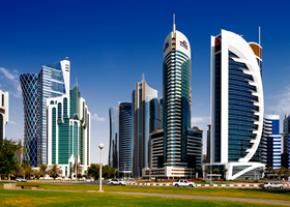An abundance of natural resources, coupled with positive political relations with the West has ensured Qatar’s position as a global producer and trader in gas and oil. While the country is working towards diversification of its economy, it’s unlikely to become substantially less reliant on natural resources any time soon.

The world’s richest country per capita as a result of said natural resources, Qatar’s population has expanded dramatically in recent years, with data from the Qatar Statistics Office showing a rise from under 750,000 in 2004 to around 1.9 million today. The same office predicts a further rise to 2.8 million by 2020, predominantly fueled by migration.
In fact, the country’s reliance on expatriate labour is so great that 94% of its workforce is made up from foreign nationals, attracted by a tax free income and unemployment levels of just 0.1%. Predominantly from non-Arab backgrounds, many expatriates come from India, Pakistan, Iran, Nepal, Philippines, and Sri Lanka. However, within the lucrative natural resources industry, most non-Arab expatriate workers come from European and North American backgrounds.
As part of Qatar’s attempts to diversify its economy, the country has invested a great deal in tourism, and looks toward its hosting of the 2022 FIFA World Cup to help promote tourism on a global scale.
Like Dubai and Abu Dhabi in the UAE, Qatar is a frequent port of call for international businesses and organisations seeking to grow their presence within, and links to the Middle East. Further, Qatar has also sought to establish itself as a political intermediary between Western and Middle Eastern politics in recent years.
Capitalising on its location, newly acquired tourist infrastructure and international airport, the country often plays host to global political gatherings and international conferences.
But while the country is welcoming to foreign nationals, non-Muslim expat inhabitants will need to understand what is, and isn’t appropriate in Islamic society, as Qatari law and customs take great influence from Islamic law.
